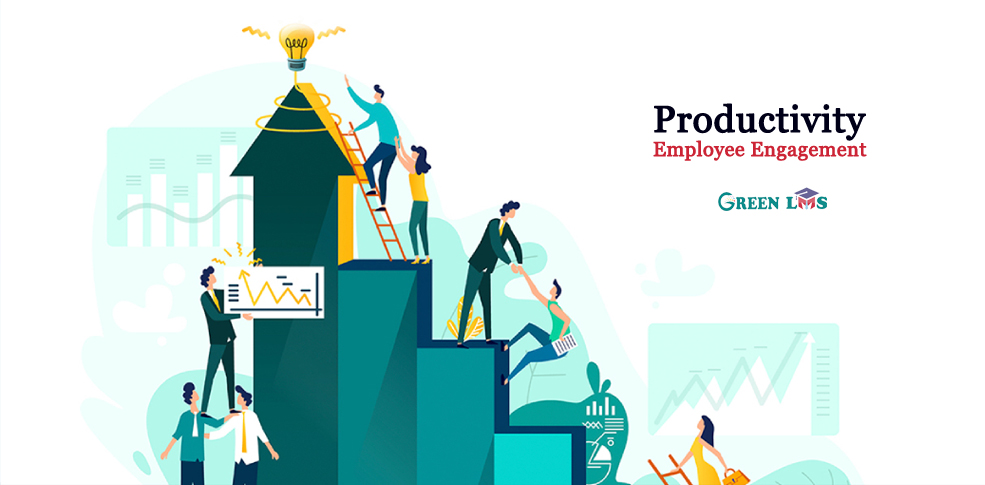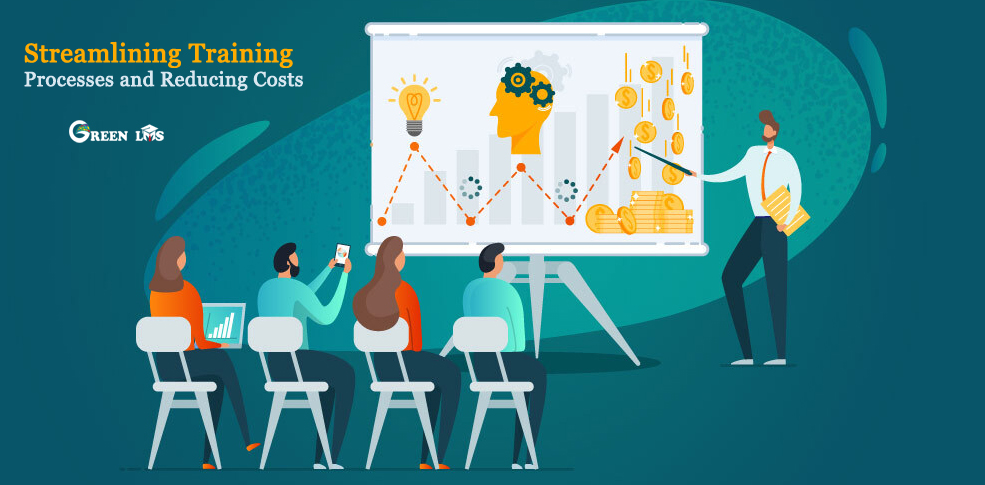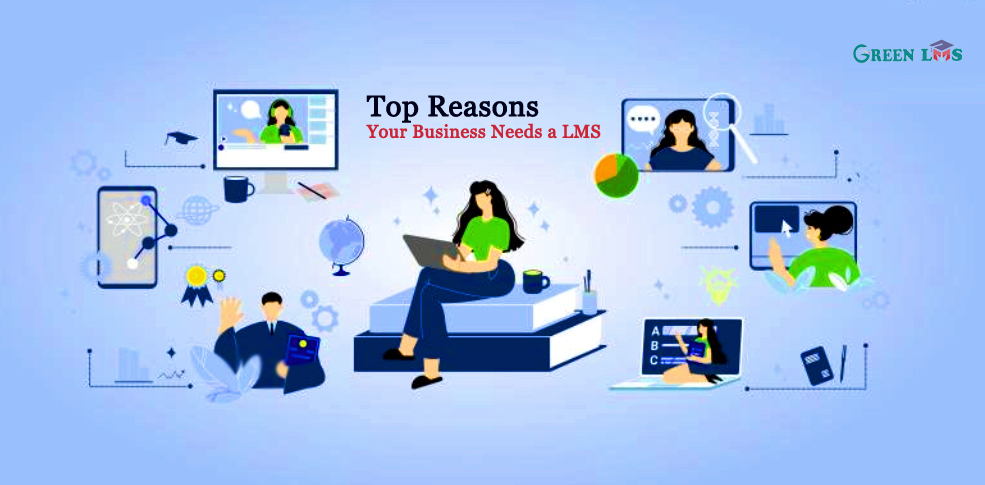Empowering Your Workforce: Unveiling the Top Reasons Your Business Needs a Learning Management System
In today’s dynamic business landscape, where technological advancements and evolving skill requirements are the norm, organizations face the constant challenge of ensuring their workforce is equipped with the knowledge and expertise necessary to navigate the ever-changing demands of the industry. This is where a learning management system (LMS) emerges as a powerful tool, providing businesses with the ability to streamline their training processes, enhance employee development, and ultimately, drive organizational success.

1. Enhancing Employee Engagement and Productivity
A well-implemented LMS can revolutionize employee engagement and productivity by transforming traditional training methods into interactive, engaging experiences. Consider the scenario of a sales team struggling to keep up with the latest product features and sales techniques. With an LMS, the organization can create bite-sized microlearning modules that cover each new product feature or sales technique in detail. These modules can be delivered through mobile devices, allowing sales representatives to learn at their own pace and convenience, even while on the go. Additionally, gamified training activities, such as leaderboard challenges and virtual rewards, can further motivate employees to participate in training and apply their newly acquired skills.

2. Streamlining Training Processes and Reducing Costs
Traditional training methods, often involving in-person sessions and instructor-led training, can be costly and time-consuming. Imagine a manufacturing company with multiple facilities across the country, each with a team of technicians requiring training on new equipment and safety procedures. With an LMS, the company can create centralized training modules that are accessible to all employees, regardless of their location. This centralized approach eliminates the need for costly travel and instructor fees, significantly reducing training expenses. Moreover, the LMS can automate tasks such as enrollment, progress tracking, and assessment grading, freeing up valuable time for training professionals to focus on more strategic initiatives.

3. Facilitating Personalized Learning and Addressing Skill Gaps
Today’s workforce comprises individuals with diverse learning styles, preferences, and skill gaps. Imagine a software development team with members ranging from experienced programmers to recent graduates. An LMS can address these differences by providing personalized learning pathways that cater to individual needs. By analyzing employee data and assessing their strengths and weaknesses, the LMS can tailor training content and delivery methods to ensure each team member receives the most relevant and effective training possible. For example, experienced programmers can be directed to advanced modules on specific programming languages, while recent graduates can focus on foundational concepts and coding techniques.

4. Enhancing Collaboration and Knowledge Sharing
A robust LMS fosters a culture of collaboration and knowledge sharing within an organization. Consider a marketing team working on a new campaign launch. An LMS can provide them with a centralized platform to share ideas, discuss strategies, and access campaign resources. This collaborative approach promotes a sense of community, enhances problem-solving, and accelerates the dissemination of knowledge across the organization. Additionally, social learning tools, such as online forums, discussion boards, and chat rooms, enable employees to connect with peers from different departments or locations, breaking down silos and fostering a more cohesive and knowledgeable workforce.

5. Providing Data-Driven Insights for Informed Decision-making
An LMS collects valuable data on employee engagement, learning progress, and skill development. Imagine an organization struggling to identify which training programs are most effective and which areas require improvement. An LMS can provide detailed analytics that track employee participation, completion rates, and skill assessments. This data can be analyzed to gain insights into the effectiveness of training programs, identify areas for improvement, and make informed decisions about resource allocation and training strategies. By leveraging data analytics, organizations can continuously optimize their training programs and maximize their return on investment.

6. Adapting to the Evolving Needs of the Modern Workplace
The modern workplace demands flexibility, accessibility, and a mobile-first approach. Imagine a customer service team that needs to be able to access training materials and complete assessments while on the go. An LMS can cater to these needs by providing a mobile-optimized platform that allows employees to access training materials, participate in activities, and complete assessments from anywhere, anytime, and on any device. This flexibility empowers employees to learn at their own pace and convenience, ensuring continuous learning even in a fast-paced environment.

7. Preparing for the Future of Work
The future of work is characterized by technological advancements, automation, and emerging skill requirements. Consider a company facing the need to transition to cloud-based technologies. An LMS can play a crucial role in preparing organizations for this future by providing a platform for upskilling and reskilling employees. By offering training programs that align with future job demands, organizations can ensure their workforce possesses the necessary skills to thrive in an ever-changing landscape. For instance, the company can provide training on cloud computing concepts, cloud-based software applications, and cloud security best practices, equipping employees with the expertise to navigate the transition to cloud-based operations successfully.

Harness the Power of an LMS and Unleash Your Workforce Potential
A learning management system (LMS) is not merely a tool for training delivery; it is a catalyst for organizational transformation. By embracing the power of an LMS, organizations can break free from traditional training limitations and unlock a world of possibilities.
Imagine a workplace where:
- Employees are empowered to take ownership of their learning, actively seeking out new knowledge and skills to enhance their performance.
- Training is no longer a one-size-fits-all approach, but rather a personalized journey tailored to individual needs and preferences.
- Collaboration and knowledge sharing flourish, creating a culture of continuous learning and innovation.
- Data-driven insights guide informed decision-making, ensuring that training investments are maximized and aligned with organizational goals.
- The workforce is equipped to adapt to the ever-changing demands of the industry, embracing technological advancements and emerging skill requirements.
With an LMS, this vision becomes a reality. Embark on this transformative journey and empower your workforce to reach their full potential.

Seize the Opportunity to Drive Organizational Excellence
The time to embrace the transformative power of an LMS is now. With the right LMS solution, your organization can achieve remarkable results, including:
- Increased employee engagement and productivity
- Reduced training costs and improved resource allocation
- Enhanced employee skills and knowledge
- Accelerated innovation and problem-solving
- Strengthened organizational agility and adaptability

Unleash the Potential of Your Workforce
Don’t let your organization be left behind in the era of continuous learning. Embrace the power of an LMS and empower your workforce to become the driving force behind your organization’s success.
Partner with a Trusted LMS Provider
Navigating the world of LMS solutions can be overwhelming. That’s why choosing a trusted LMS provider is essential. With a proven track record, a commitment to innovation, and a dedicated support team, the right LMS provider will guide you through every step of the journey, ensuring a seamless transition and maximizing your return on investment.

Experience the Transformative Power of Green LMS
Green LMS is a cloud-based learning management system (LMS) that empowers organizations of all sizes to create and deliver engaging, effective, and accessible learning experiences. With its intuitive design, powerful capabilities, and scalable architecture, Green LMS provides a comprehensive suite of features to support the evolving needs of modern organizations.
Green LMS: Your Partner in Workforce Transformation
Green LMS is more than just an LMS; it’s a partner in your organization’s journey towards workforce transformation. With a dedicated team of experts, Green LMS provides comprehensive support and guidance throughout your LMS implementation journey. From initial setup and training to ongoing support and customization, Green LMS ensures that you have the resources and expertise you need to maximize the impact of your LMS investment.
Empower Your Workforce with Green LMS
Take the first step towards a transformed workforce and contact Green LMS today. Schedule a demo and experience firsthand how Green LMS can revolutionize your training processes, enhance employee development, and drive your organization towards a brighter future.
Green LMS can be tailored for various applications, including higher education LMS, Schools LMS, LMS for corporate training, and LMS for business development and Click here for a Free LMS Demo Now.


